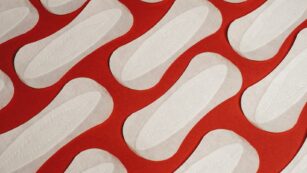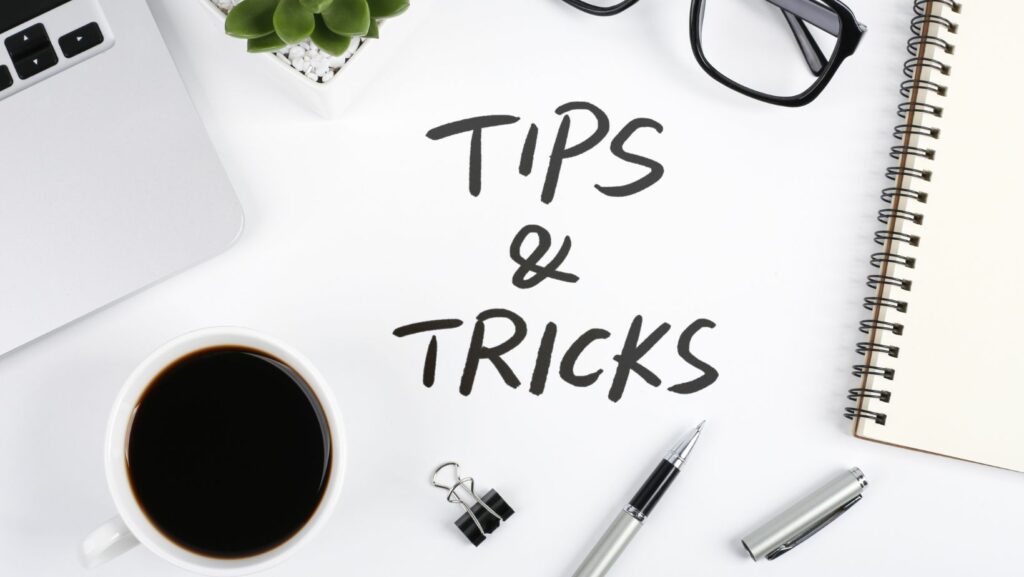Navigating the ups and downs of a menstrual cycle can be challenging, but with the right tips and tricks, it doesn’t have to be. Many people experience discomfort and inconvenience during their periods, yet there are plenty of strategies to make this time more manageable. From dietary adjustments to lifestyle changes, simple tweaks can significantly improve comfort and well-being. Whether dealing with cramps, bloating, or mood swings, these practical tips aim to empower and ease the journey through each cycle. Dive in to discover how to make your period a little less daunting and a lot more bearable. Adopt good hygiene practices during menstruation to minimize risks and maximize comfort. Wash hands thoroughly before and after changing sanitary products to prevent bacterial transfer. Clean the genital area with warm water and mild, unscented soap to avoid irritation and maintain natural pH balance. Wear clean, breathable cotton underwear and avoid tight clothing
Period Tips And Tricks
 Finding ways to manage your period effectively can significantly improve comfort and well-being. Here are some practical tips and tricks to help alleviate common menstrual issues. Over-the-counter (OTC) medications offer quick relief from period pain. Nonsteroidal anti-inflammatory drugs (NSAIDs) like ibuprofen and naproxen can reduce cramps and inflammation. Acetaminophen, though less effective for inflammation, helps manage pain. Always follow the dosage instructions to avoid side effects. Natural remedies provide alternative ways to manage period symptoms. Herbal teas, including chamomile and ginger, can reduce bloating and cramps. Essential oils like lavender and clary sage, when used for aromatherapy, alleviate stress and mood swings. Increasing water intake helps reduce bloating, while magnesium-rich foods like spinach and nuts decrease muscle cramps. Evaluate lifestyle and flow to pick the best option. Follow specific guidelines for sanitary product usage to ensure safety and hygiene. Change pads every 4-6 hours to prevent infections and odor.
Finding ways to manage your period effectively can significantly improve comfort and well-being. Here are some practical tips and tricks to help alleviate common menstrual issues. Over-the-counter (OTC) medications offer quick relief from period pain. Nonsteroidal anti-inflammatory drugs (NSAIDs) like ibuprofen and naproxen can reduce cramps and inflammation. Acetaminophen, though less effective for inflammation, helps manage pain. Always follow the dosage instructions to avoid side effects. Natural remedies provide alternative ways to manage period symptoms. Herbal teas, including chamomile and ginger, can reduce bloating and cramps. Essential oils like lavender and clary sage, when used for aromatherapy, alleviate stress and mood swings. Increasing water intake helps reduce bloating, while magnesium-rich foods like spinach and nuts decrease muscle cramps. Evaluate lifestyle and flow to pick the best option. Follow specific guidelines for sanitary product usage to ensure safety and hygiene. Change pads every 4-6 hours to prevent infections and odor.
Maintaining Menstrual Hygiene
Maintaining menstrual hygiene is crucial for overall health during the menstrual cycle. Proper practices help prevent infections and ensure comfort. Selecting suitable sanitary products is critical for good menstrual hygiene. Options include pads, tampons, menstrual cups, and period underwear. While pads are commonly used for their simplicity and accessibility, tampons are discreet and suitable for physical activities. Menstrual cups, made of medical-grade silicone, offer an eco-friendly option and can be worn for up to 12 hours. Period underwear provides a reusable alternative, integrating absorbent materials to prevent leaks. Tampons need changing every 4-8 hours, not to exceed 8 hours to avoid Toxic Shock Syndrome (TSS). Menstrual cups should be emptied and rinsed every 8-12 hours, and sterilized between cycles. Period underwear should be washed as per manufacturer instructions to maintain absorbency and hygiene. Proper usage protects against bacterial growth and related issues. Adopt good hygiene practices during menstruation to minimize risks and maximize comfort. Wash hands thoroughly before and after changing sanitary products to prevent bacterial transfer. Clean the genital area with warm water and mild, unscented soap to avoid irritation and maintain natural pH balance. Wear clean, breathable cotton underwear and avoid tight clothing to allow air circulation and reduce moisture buildup.
ensure comfort. Selecting suitable sanitary products is critical for good menstrual hygiene. Options include pads, tampons, menstrual cups, and period underwear. While pads are commonly used for their simplicity and accessibility, tampons are discreet and suitable for physical activities. Menstrual cups, made of medical-grade silicone, offer an eco-friendly option and can be worn for up to 12 hours. Period underwear provides a reusable alternative, integrating absorbent materials to prevent leaks. Tampons need changing every 4-8 hours, not to exceed 8 hours to avoid Toxic Shock Syndrome (TSS). Menstrual cups should be emptied and rinsed every 8-12 hours, and sterilized between cycles. Period underwear should be washed as per manufacturer instructions to maintain absorbency and hygiene. Proper usage protects against bacterial growth and related issues. Adopt good hygiene practices during menstruation to minimize risks and maximize comfort. Wash hands thoroughly before and after changing sanitary products to prevent bacterial transfer. Clean the genital area with warm water and mild, unscented soap to avoid irritation and maintain natural pH balance. Wear clean, breathable cotton underwear and avoid tight clothing to allow air circulation and reduce moisture buildup.
Dietary Considerations
 Navigating a menstrual cycle doesn’t have to be overwhelming. By incorporating dietary adjustments and lifestyle changes, individuals can significantly improve their comfort and overall well-being. From using over-the-counter medications and natural remedies to engaging in light exercise and maintaining proper hygiene, there are numerous strategies to alleviate common menstrual symptoms. Choosing the right sanitary products and practicing good hygiene are crucial for a healthier and more comfortable period experience. With these practical tips and tricks, anyone can feel more empowered to manage their menstrual cycle effectively. Exercise and stretching improve overall comfort during periods. Light aerobic activities, like walking and swimming, enhance blood circulation and reduce cramps. Stretching exercises, such as yoga, increase flexibility and decrease muscle tension. Practicing specific poses like Child’s Pose and Cat-Cow Stretch can be particularly beneficial during menstruation.
Navigating a menstrual cycle doesn’t have to be overwhelming. By incorporating dietary adjustments and lifestyle changes, individuals can significantly improve their comfort and overall well-being. From using over-the-counter medications and natural remedies to engaging in light exercise and maintaining proper hygiene, there are numerous strategies to alleviate common menstrual symptoms. Choosing the right sanitary products and practicing good hygiene are crucial for a healthier and more comfortable period experience. With these practical tips and tricks, anyone can feel more empowered to manage their menstrual cycle effectively. Exercise and stretching improve overall comfort during periods. Light aerobic activities, like walking and swimming, enhance blood circulation and reduce cramps. Stretching exercises, such as yoga, increase flexibility and decrease muscle tension. Practicing specific poses like Child’s Pose and Cat-Cow Stretch can be particularly beneficial during menstruation.

